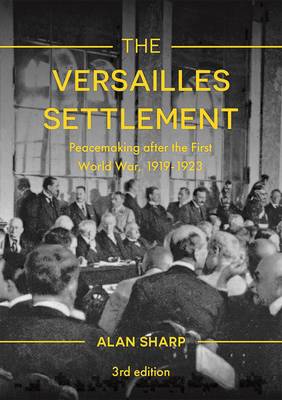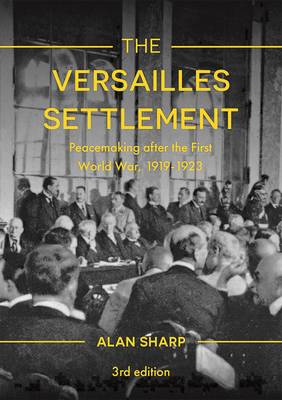
Bedankt voor het vertrouwen het afgelopen jaar! Om jou te bedanken bieden we GRATIS verzending (in België) aan op alles gedurende de hele maand januari.
- Afhalen na 1 uur in een winkel met voorraad
- In januari gratis thuislevering in België
- Ruim aanbod met 7 miljoen producten
Bedankt voor het vertrouwen het afgelopen jaar! Om jou te bedanken bieden we GRATIS verzending (in België) aan op alles gedurende de hele maand januari.
- Afhalen na 1 uur in een winkel met voorraad
- In januari gratis thuislevering in België
- Ruim aanbod met 7 miljoen producten
Zoeken
€ 69,45
+ 138 punten
Uitvoering
Omschrijving
The third edition of this acclaimed textbook on peace-making after the First World War advances that the responsibility for the outbreak of a new, even more ruinous, war in 1939 cannot be ascribed entirely to the planet's most powerful men and their meeting in Paris in January 1919 to reassemble a shattered world. Giving a concise overview of the problems and pressures these key figures were facing, Alan Sharp provides a coherent introduction to a highly complex and multi-dimensional topic.
This is an ideal resource for undergraduate and postgraduate students taking modules on the Versailles Settlement, European and International History, Modern History, Interwar Europe, The Great War, 20th Century Europe, German History, or Diplomatic History, on either history courses or international relations/politics courses.
This is an ideal resource for undergraduate and postgraduate students taking modules on the Versailles Settlement, European and International History, Modern History, Interwar Europe, The Great War, 20th Century Europe, German History, or Diplomatic History, on either history courses or international relations/politics courses.
Specificaties
Betrokkenen
- Auteur(s):
- Uitgeverij:
Inhoud
- Aantal bladzijden:
- 316
- Taal:
- Engels
- Reeks:
- Reeksnummer:
- nr. 30
Eigenschappen
- Productcode (EAN):
- 9781137611406
- Verschijningsdatum:
- 23/05/2018
- Uitvoering:
- Paperback
- Formaat:
- Trade paperback (VS)
- Afmetingen:
- 148 mm x 210 mm
- Gewicht:
- 412 g

Alleen bij Standaard Boekhandel
+ 138 punten op je klantenkaart van Standaard Boekhandel
Beoordelingen
We publiceren alleen reviews die voldoen aan de voorwaarden voor reviews. Bekijk onze voorwaarden voor reviews.









